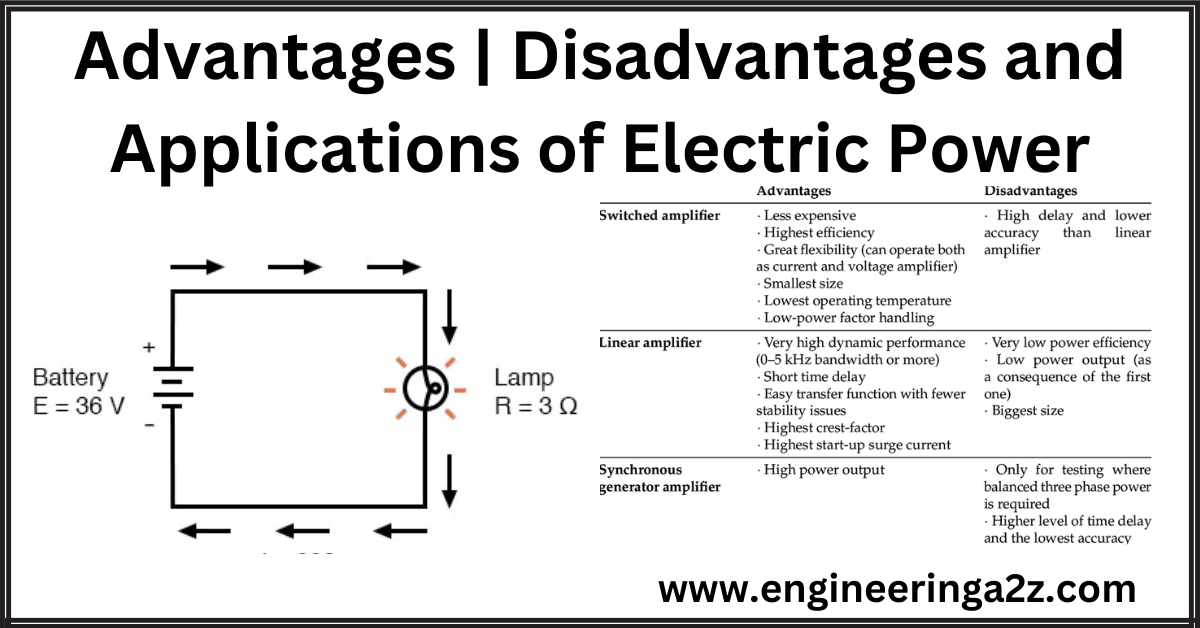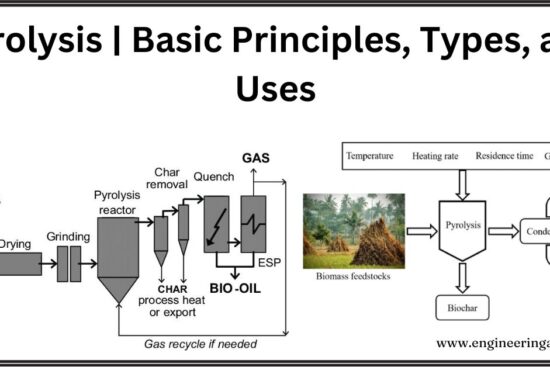
Table of Contents
Electric power is defined by current or the flow of electric charge and voltage or the potential of charge to deliver energy. A given value of power can be produced by any combination of current and voltage values. If the current is direct, the electronic charge progresses always in the same direction through the device receiving power. If the current is alternating, electronic charge moves back and forth in the device and in the wires connected to it.
For many applications either type of current is suitable, but alternating current is most widely available because of the greater efficiency with which it can be generated and distributed. A direct current is required for certain industrial applications, such as electroplating and electrometallurgical processes, and for most electronic devices.
Advantages of Electric Power
1. Lower Energy Bills
Fuel-burning appliances and equipment waste some energy during combustion. Electric appliances, on the other hand, are 100% efficient, which means that all of the energy used is directly utilized to heat your food or illuminate your home. Some electric devices, like heat pump technology, are even more energy-efficient than 100%. Your energy expenditures can go down because of this efficiency and the consistently low prices of electricity.
2. Better Indoor Air Quality
By burning fossil fuels in a closed setting, gas appliances can produce indoor air pollution. If pollutants like carbon monoxide accumulate in harmful amounts, they can lead to disease or death. Utilizing electric equipment and appliances will increase your health and safety.
3. Cleaner Environment
Electric equipment and appliances have zero on-site emissions, which minimizes your environmental impact. The increased usage of renewable energy sources, including solar and wind, on the grid is contributing to a cleaner environment for all even though producing power does result in greenhouse gas emissions.
4. Using Electricity
Your air conditioner, television, and lights are already powered by affordable, dependable electricity. You may transition to using electricity for space heating, water heating, and cooking thanks to this cutting-edge technology.
5. A Heat Pump
Air-source heat pumps and geothermal energy offer year-round comfort. They can condition your area at an efficiency of 150% to 300% since they transport heat rather than produce it.
6. Heat Pump Water Heaters
It also moves heat to create high-efficiency hot water. How efficient? The efficiency of a water heater is measured by the Unified Energy Factor (UEF). A heat pump unit has a UEF of 2.7, compared to 0.7 for a high-efficiency gas water heater.
7. Induction Cooking Heats
It only has the pots and pans on the stovetop, resulting in increased energy efficiency, faster cooking times, better temperature control, and improved safety.
Disadvantages of Electric Power
- Greater cost than petrol.
- Fish species extinction.
- Occasionally disturbs wildlife depending on precipitation.
- Pollution and power plants are expanding.
- Damming might result in the loss of land that is useful for both agriculture and recreation.
- Construction costs.
- Quality of a river or stream changes.
- Even an electric car produces some emissions.
- For a large number of dams, there are only a few suitable sites in the electrical sector.
- Power generation may be impacted by drought.
- Natural seasonal fluctuations in rivers and ecosystems can be eliminated by hydroelectricity.
Applications of Electric Power
Electricity plays an important role in our day-to-day life. It has become a part and parcel of everyone’s life, may be rich or poor. Various applications of electricity in our daily life are:
1. Lighting: It is used for lighting purposes in houses, industries, institutions, offices, workshops, and street lighting. Electrical energy is converted into light energy by the use of lamps and fluorescent tubes.
2. Heating: Electricity is used for heating purposes. In houses, it is used in the form of heaters, hot plates, room heaters, ovens, geysers, etc. In industries, electricity is used for heating ovens, boilers, furnaces, etc.
3. Running of Motors: For domestic purposes, electricity runs the motors of appliances like ceiling fans, table fans, refrigerators, coolers, air conditioners, water coolers, etc. In industries, electricity runs the motors of various machines used in that industry, coal conveyors, air conditioning plants, etc. In offices, it is used in fans, air conditioners, lifts, etc. The electrical energy is converted into mechanical energy.
4. Welding: Welding of metals is done with the help of electricity through welding transformers and welding generators.
5. Electroplating: The electrolysis process and electroplating of utensils and ornaments etc. are done with the use of electricity. A thin layer of precious decorative material is laid over the surface of utensils and ornaments.
6. Charging of Battery: Secondary batteries are charged by applying electricity. These batteries are commonly used in automobiles, investors, etc.
7. In Sound System: Electricity finds its application in radios, transistors, tape recorders television, and record players. Amplifiers also use electricity.
8. In Electronic Equipment: Electronic equipment like T.V., computers, etc. also works on electricity 9. Telephones: The telephone system also operates with electricity.
9. For Theaters: In today’s life an important application of electricity is in the screening of films.
10. Relays: Different protection and alarm relays used in powerhouses and substations are operated.
11. Electric Traction: For electric traction also electricity is used in many parts of the country.
12. Communication System: All communication systems like radio stations, T.V. broadcasting stations Radars, etc. require electrical energy for their operation.
Read Also :
- Advantages of Electric Heating
- Advanced Electric Drives Notes | Engineeringa2z
- Thermal Power Plant | Working | Advantages and Disadvantages
- Chopper | Types of Chopper | Applications of Chopper











Leave a Reply